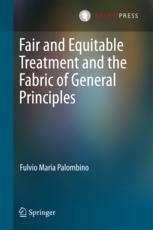

Most ebook files are in PDF format, so you can easily read them using various software such as Foxit Reader or directly on the Google Chrome browser.
Some ebook files are released by publishers in other formats such as .awz, .mobi, .epub, .fb2, etc. You may need to install specific software to read these formats on mobile/PC, such as Calibre.
Please read the tutorial at this link: https://ebookbell.com/faq
We offer FREE conversion to the popular formats you request; however, this may take some time. Therefore, right after payment, please email us, and we will try to provide the service as quickly as possible.
For some exceptional file formats or broken links (if any), please refrain from opening any disputes. Instead, email us first, and we will try to assist within a maximum of 6 hours.
EbookBell Team

4.8
94 reviewsThis book moves from the circumstance whereby currently the obligation to provide
fair and equitable treatment (FET) to foreign investments is included in the majority of
international investment agreements and has proved to be the most invoked standard in
investor-State arbitration. Hence, it is no overstatement to describe this standard as the
basic norm of international investment law. Yet both its meaning and normative basis
continue to be shrouded in ambiguity and, as a consequence, to inspire a considerablenumber of interpretations by legal writers. The book’s precise aim is to unravel such
ambiguity, arguing from the idea that FET has become part of the fabric of general international
law, but has done so by means of a source somewhat neglected in legal doctrine.
This being the category of general principles peculiar to a certain field of international
law, i.e. those principles having their own foundations in the international legal orderitself, but which, through the mediation of the judge, end up being shaped according
to the features typical of a specific normative field. The book, as well as having a solid
theoretical backdrop as its basis, offers a careful and critical analysis of pertinent case
law, and will prove useful to both scholars and practitioners.
Fulvio Maria Palombino is Professor of International Law at the Law Department of the
University of Naples Federico II and a member of the Executive Board of the European
Society of International Law.